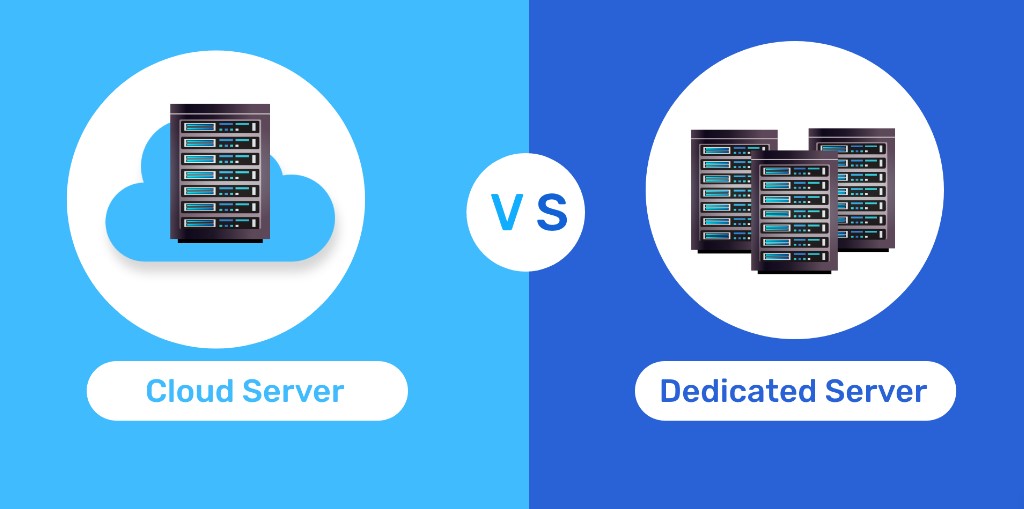
Both cloud and dedicated hosting are the two most preferred choices if you are looking for commendable performance and uptime.
The best cloud hosting services help businesses to scale efficiently, ensure high availability, and deliver exceptional performance, as everything can be managed automatically on a pre-integrated platform.
However, the biggest question that remains today in the market of website hosting in India is deciding which is the best option among the two. So, let us understand the difference between a dedicated server vs cloud server hosting in this article.
What is Cloud Hosting?
In cloud hosting, a single physical server gets divided into multiple virtual servers. Each of these virtual servers is then rented out to different consumers. All virtual servers are an active part of the virtualised environment where they share resources such as RAM, storage space, and physical server networks.
Pros of Cloud Hosting
- Less costly than Dedicated Hosting
- Easy Scalability
- Easy to set and manage
Cons of Cloud Hosting
- Low-Performance Quality
- Options to customise hardware and software are comparatively low
What is a Dedicated Server?
In the case of a dedicated server, an entire physical server is allocated solely to your business. Unlike cloud hosting, no customer shares any of the resources. You can either rent a dedicated server or buy one.
Pros of Dedicated Hosting
- High Performance
- Fully tailored hardware and software
- Complete freedom to choose your server and software
Cons of Dedicated Hosting
- Costly
- Servers are not agile
- Professional expertise needed in setup and management
Difference Between Dedicated Hosting and Cloud Hosting
The differences between cloud vs dedicated servers are discussed below:
| Factors | Dedicated Hosting | Cloud Hosting |
| Cost | In dedicated hosting, you need expert knowledge and high-level resources to manage the server, which makes it a costly option. | Here, you pay only for the space and resources you use, making it the most cost-effective solution. |
| Management | The owner has complete control over the server and can manage it accordingly. | On the other hand, as the cloud server is managed, users do not have to exercise any extra control over it. |
| Reliability | In a dedicated server, you deal with a single server, so if any failure arises, it can shut down the entire server, including its data. | In cloud hosting, multiple servers manage your web pages, so even if a server collapses, another server automatically handles your website. |
| Security | A dedicated server provides robust security. | Cloud Hosting may not be secure because if your password is stolen, your data can be lost, altered, or temporarily unavailable. |
| Customisation | In dedicated hosting, the user has complete control over the server and can adjust it according to the need. | Cloud hosting does not provide that much control, so the user has no privilege to customise the server. |
| Integration of Tools | In dedicated hosting, you must pay additional costs if you want to integrate the server with some utility-based tools. | Cloud Hosting provides you with multiple tools at less cost. |
| Scalability | Dedicated Servers are not scalable. | Cloud servers are highly scalable; you can change the resources and server space anytime. |
Conclusion
So, between dedicated hosting vs cloud hosting, you will see that both have their distinctive features.
Large businesses with applications that are always on the edge of experiencing enormous traffic and need uninterrupted computing resources typically opt for dedicated server hosting. On the other hand, small companies who want to host applications and experience medium volumes of traffic consider cloud hosting.
